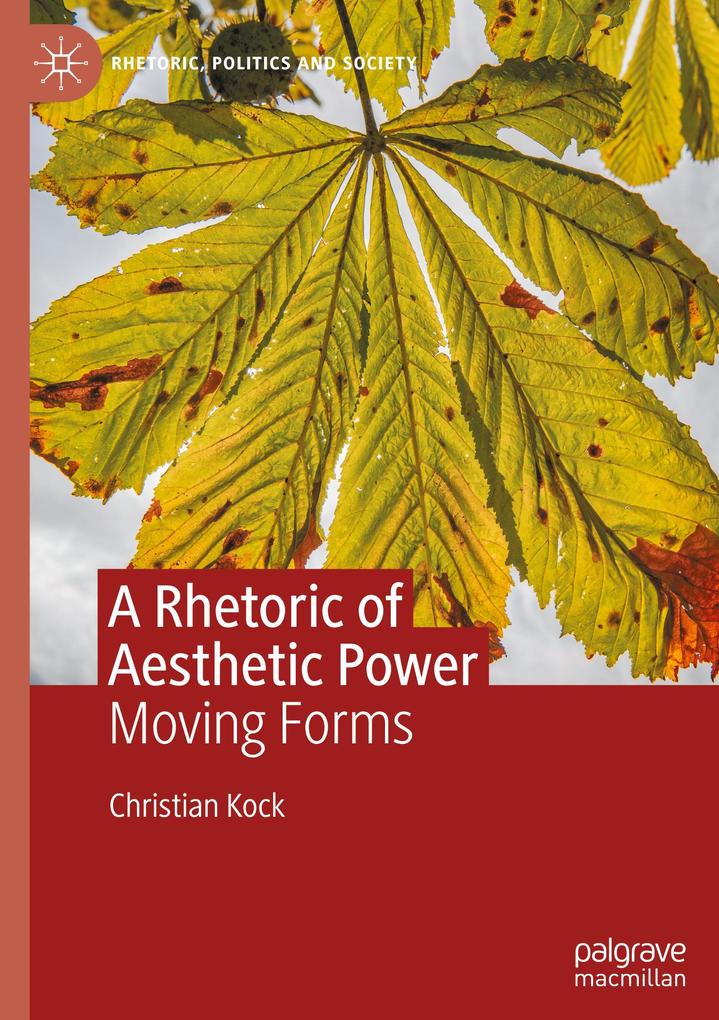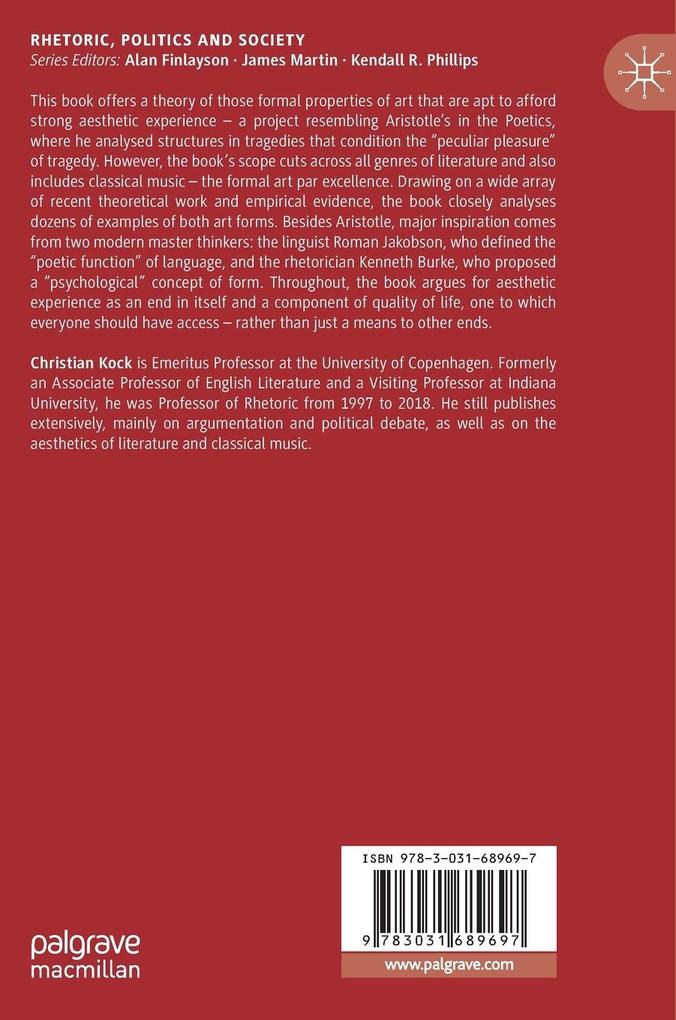
Zustellung: Do, 05.06. - Di, 10.06.
Versand in 1-2 Wochen
VersandkostenfreiBestellen & in Filiale abholen:
This book offers a theory of those formal properties of art that are apt to afford strong aesthetic experience - a project resembling Aristotle's in the Poetics, where he analysed structures in tragedies that condition the "peculiar pleasure" of tragedy. However, the book's scope cuts across all genres of literature and also includes classical music - the formal art par excellence. Drawing on a wide array of recent theoretical work and empirical evidence, the book closely analyses dozens of examples of both art forms. Besides Aristotle, major inspiration comes from two modern master thinkers: the linguist Roman Jakobson, who defined the "poetic function" of language, and the rhetorician Kenneth Burke, who proposed a "psychological" concept of form. Throughout, the book argues for aesthetic experience as an end in itself and a component of quality of life, one to which everyone should have access - rather than just a means to other ends.
Inhaltsverzeichnis
Chapter One: What Moves Us. - Chapter Two: A Rhetorical Aesthetics. - Chapter Three: Affective Attractions. - Chapter Four: Structural Attractions. - Chapter Five: Semiotic Attractions.
Produktdetails
Erscheinungsdatum
19. Oktober 2024
Sprache
englisch
Seitenanzahl
396
Reihe
Rhetoric, Politics and Society
Autor/Autorin
Christian Kock
Verlag/Hersteller
Produktart
gebunden
Abbildungen
X, 386 p. 41 illus., 2 illus. in color.
Gewicht
623 g
Größe (L/B/H)
216/153/26 mm
Sonstiges
HC runder Rücken kaschiert
ISBN
9783031689697
Entdecken Sie mehr
Bewertungen
0 Bewertungen
Es wurden noch keine Bewertungen abgegeben. Schreiben Sie die erste Bewertung zu "A Rhetoric of Aesthetic Power" und helfen Sie damit anderen bei der Kaufentscheidung.











